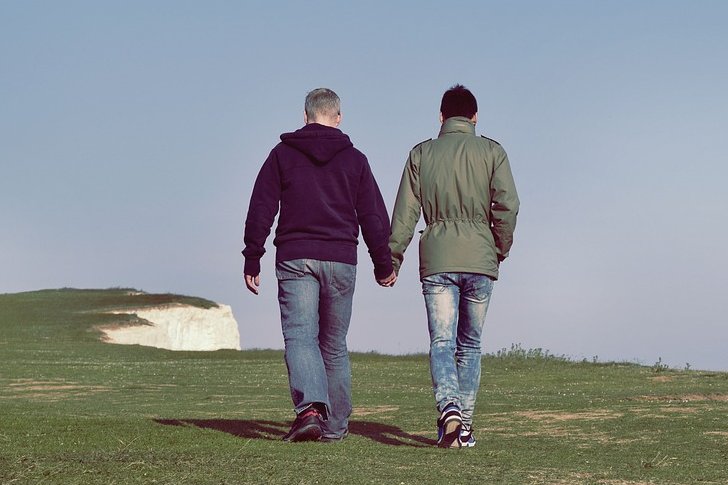A new examine indicates that getting rid of a partner to COVID-19 may well be even worse for mental health than other leads to of death. Photo by Pexels/Pixabay
July 26 (UPI) — A new study indicates that losing a spouse to COVID-19 may well be even worse for mental well being than death from other causes.
This exploration highlights that the millions of COVID-19 widows and widowers experience “intense psychological well being pitfalls,” the researchers mentioned in a information launch, “eclipsing individuals seasoned by surviving spouses pre-pandemic” and heightening concerns about the pandemic’s long lasting impression on well being.
And this large team of bereaved more mature adults stays in will need of scientific healthcare aid, suggests the Nationwide Institutes of Wellness-funded analyze by Penn Point out scientists posted Tuesday in the Journals of Gerontology-Sequence B.
The analysis conclusions underscore the ongoing wellbeing risks posed by the COVID-19 pandemic, even to all those who have not been infected by the virus, Ashton Verdery, a examine co-creator, mentioned in the release.
“These threats use to tens of millions of people today across the world who have shed their wives, husbands and companions,” mentioned Verdery, associate professor of sociology and demography at Penn Point out.
The investigation targeted on examining regardless of whether a individual whose wife or husband or associate died from COVID-19 confronted exclusive mental wellness dangers — which include self-claimed despair, loneliness, and hassle sleeping — as opposed with pre-pandemic current spousal fatalities.
To achieve this, the scientists pooled study details from 27 nations around the world, evaluating a pre-pandemic time period, ranging from October 2019 to March 2020, to an early pandemic interval from June by means of August 2020.
Adults in the two samples have been related in phrases of age, starting at 50 and more mature gender, work position and residence measurement.
In accordance to the study’s findings, strong associations existed in between modern spousal demise and weak mental wellness equally just before and during the pandemic.
But the scientists’ examination indicated that individuals whose spouses died of COVID-19 experienced better risk of self-noted melancholy and loneliness — but not difficulty sleeping — than what would be anticipated dependent on pre-pandemic associations.
Scientists explained it can be been debated irrespective of whether indirect health and fitness impacts of COVID-19, such as bereavement, are worse than comparable ordeals in pre-pandemic moments.
But. they mentioned “there are motives to suspect as a great deal,” since earlier exploration suggests this could be the circumstance owing to danger variables, this sort of as a sudden or traumatic demise, nerve-racking conditions surrounding loss of life and location of demise, and lack of interpersonal guidance and coping assets subsequent demise.
The researchers also cited past reports that indicated men and women whose cherished ones die “negative deaths” — marked by bodily distress, trouble breathing, social isolation, psychological distress, deficiency of planning, getting treated with no respect or dignity, and getting undesirable professional medical interventions — are likely to report better mental distress than those whose loved types die in unique instances.
For the duration of the early levels of the COVID-19 crisis, much of this held correct, they mentioned. The bereaved were deprived of closing times with beloved kinds who were dying of the coronavirus or other causes, as nicely as in-particular person funeral and memorial rituals for the reason that of the general public wellness unexpected emergency.
In addition, the researchers explained, the challenges were being possible exacerbated by other stressors linked with the pandemic, such as social isolation, superior-worry residing scenarios, elevated possibility of money problems, and lessen rates of employing psychological well being providers, as outlined in earlier reports.
Still, this all this had been conjecture, with the “COVID-19 differential influence” hypothesis untested in population-centered facts right up until this research was performed, according to the scientists.
Tests the speculation was tough because of two factors: the dearth of good inhabitants-based mostly info from the pandemic, and the simple fact that available data on COVID-19 bereavement are generally based on unique surveys with different sampling parameters.
But the researchers reported they overcame the difficulties by applying recently obtainable details from two iterations of the Survey of Wellness, Getting old, and Retirement, or SHARE, survey in Europe.
They reported their conclusions lend help to the plan that “bad fatalities” are primarily dangerous for older adults’ mental overall health, even outside the house of pandemic contexts.
And, the experts claimed, though their study’s concentrate was minimal to spousal loss, a significantly larger sized share of the populace has expert other family members and outdoors-of-household losses from COVID-19 probably to have a solid negative impression on their psychological health.
They anticipate potential analysis on whether or not other sorts of bereavement for the duration of the pandemic, such as small children dropping their parents, carry related extra challenges.








